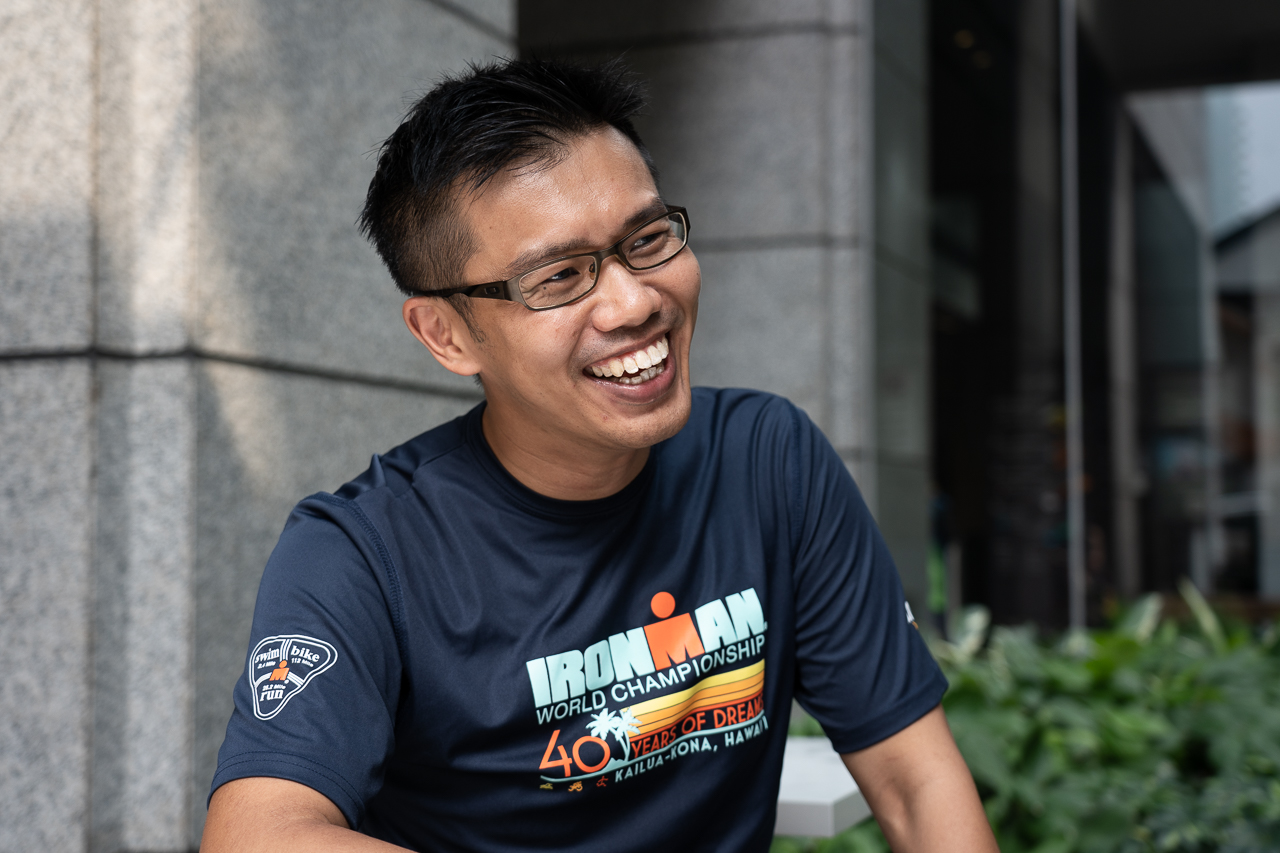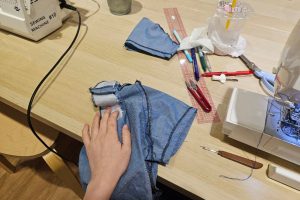I don’t know what to call the man in front of me.
A masochist? Insane? One tough badass? I mean, who in their right mind signs up for not one, not two, but FIFTEEN Ironman races in their lifetime?!
But before I get ahead of myself, and for the benefit of other couch potatoes who think “Ironman” only refers to a dead Avenger, let me explain.
An Ironman race is your standard triathlon jacked up on steroids, consisting of a 3.86km swim, a 180.25km bike ride, and a 42.20km run. And yes, in that order.
I’m exhausted just thinking about it, but then the man drops a bombshell: in 2012 alone, he completed 3 Ironman races over the span of just 15 days.
“Ironman races are extremely tough. And you can quit whenever you want. But the question is: when you’re faced with adversity, will you carry on? What doesn’t challenge you doesn’t help you to grow. It’s fun!” says Military Expert 3 (ME3) Dex Tai.
Like I said, what a madman. But the Combat Systems Engineer with the Republic of Singapore Navy didn’t always think this way.

In fact, “mediocre” is exactly the word Dex uses when describing his younger self.
Typical of Asian parents (i.e good grades = good career = good paycheque), Dex’s parents had high hopes of him. They wanted him to be a high-achiever, sending him for tuition classes to ensure the Tanglin Secondary School alumnus did well in school.
But the straight As never came, even though he wasn’t exactly flunking out of school either. Calling himself a “pretty average student”, Dex shares that year upon year, he barely scraped through his examinations. It wasn’t that he was deliberately being obtuse; his interests simply lay outside the classroom. And as someone who couldn’t see how learning about the inverse function of logarithms would apply to my future, I get it. It’s hugely frustrating when you’re forced to study something you don’t care about.
Like any other boy his age, Dex liked fun—something he found in droves in his CCA. As a member of the Boys’ Brigade (BB), he learned about things like rigging, first aid, crafts, and the whole host of outdoor activities the BB offered. He loved it.
Of course, there was also the stuff that was “less enjoyable”, like regimental aspects such as foot drills. But being amongst friends made everything easier, and he always looked forward to his CCA. This is why he credits his CCA rather than the classroom for shaping and instilling his values. Everything that turned Dex into who he is today had almost nothing to do with academia.
Through the drill sessions and focus on bearings, he learnt discipline. As most of the outdoor activities required him to work closely with his peers in order to succeed, he learnt the value of teamwork. And with the BB’s emphasis on community service, he learnt how to think beyond himself.
After leaving secondary school, it was more of the same. At the “encouragement” and “recommendation” of his family, Dex enrolled in Ngee Ann Polytechnic’s School of Electronic and Computer Engineering despite not having much interest in the course.
“At that point in time, engineering was the way to go. It was the ‘safe’ route and to my parents, it meant I would always be able to find a job to make a living. I didn’t exactly hate engineering but I definitely wasn’t exactly interested or passionate about it. I guess I didn’t see the relevancy it had to my life.”
Predictably, Dex’s way out was to once again heavily involve himself in activities outside the classroom. He joined his school’s outdoor adventure club, and even found the time to return to his alma mater, helping to teach the younger BB cadets. The sense of brotherhood never left him, and he wanted to give back.
By the time graduation rolled around, it was clear to Dex what truly captured his heart.
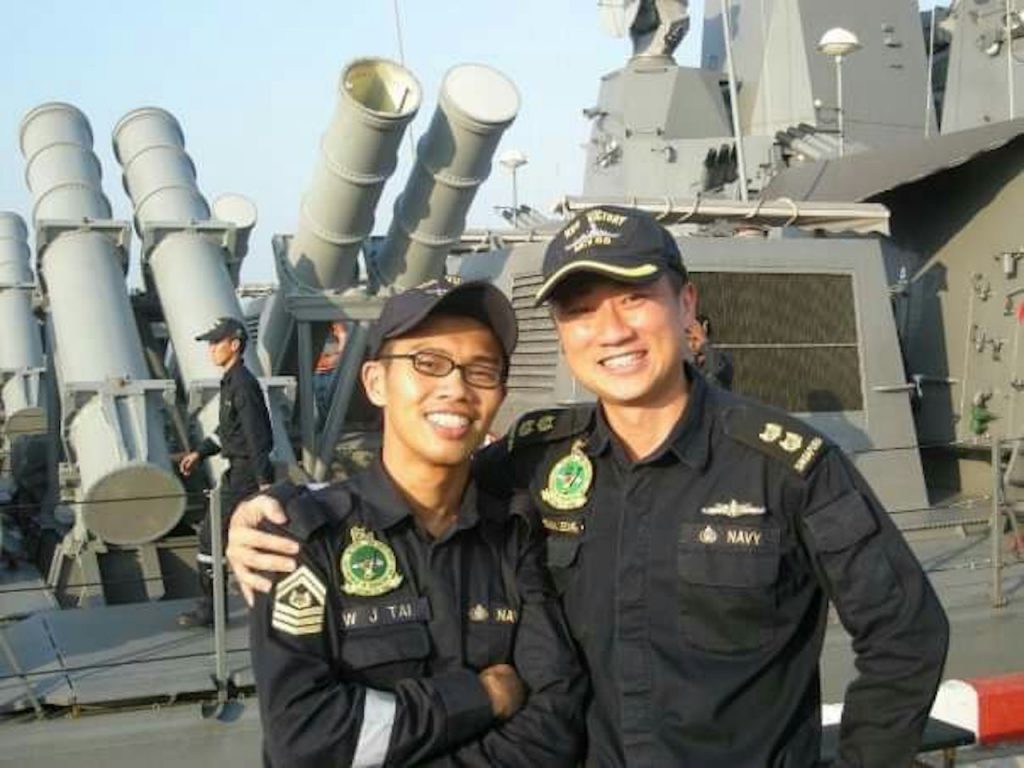
A couple of weeks into his BMT training, Dex made the decision to sign on with the Navy.
It made perfect sense. He had always been an outdoorsman, and there was no way he would’ve settled for a future handling paperwork, deskbound, working 9-5. He wouldn’t have lasted. In any case, Dex wanted to apply what he had learnt. The Navy, with its many different jobs with varying job scopes, was where he could make use of what he learnt in school.
Besides, it was a chance to see the world—an old Navy tagline.
“I found it a waste to spend 3 years studying something only to not use it in the end—that’s just how my character is. You have to apply the stuff you’ve learnt along the way,” he told me.
Today, Dex is an engineer and is in charge of ensuring his comrades in the submarines stay safe. Essentially, he is responsible for the underwater, navigation, communication, and weapon systems. But before he entered his current phase, he cut his teeth on the 10 years he spent on board the Navy warships.
He learnt everything through on-the-job training, after which he was expected to perform his role to the highest standard. Dealing with million-dollar equipment taught him responsibility. And when they went out to sea—the longest voyage being 3-4 weeks—he learnt independence.
During military exercises and missions to [CLASSIFIED], Dex realised how important his job was, and learnt how to see the bigger picture.
“We work in the Combat Information Centre on board ship and have to deal with a constant influx of information in a short amount of time. For example, if we make contact with an unfamiliar vessel, we have to determine if they’re friendly or hostile. Only after making sense of everything, we will then be able to classify the vessel and the Operations Officer will have to make the decisive call. That’s what fighting a war is like.”
Knowing that the slightest error in judgement could lead to serious consequences in terms of national security, Dex shares that the job can get stressful. They train extremely hard to make sure that they know exactly what to do when the button is pressed.
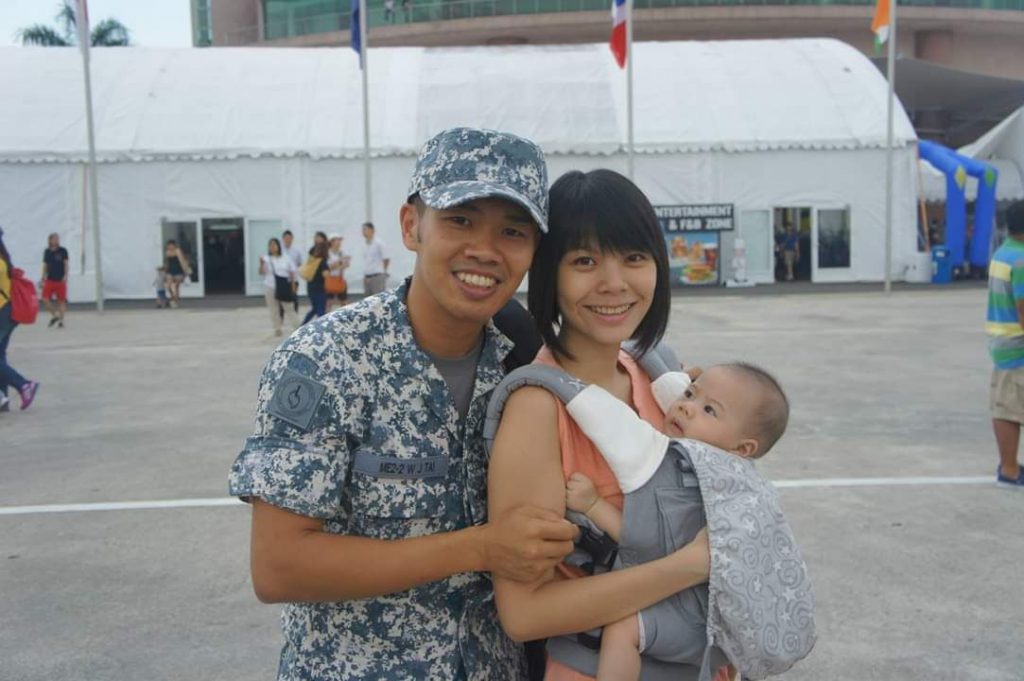
Like his time in BB, Dex’s colleagues make everything better. When they’re out at sea, everyone on board relies on one another, and teamwork is essential. An informal brotherhood forms where colleagues turn into friends.
“I would say that because we’re such a tight-knit group, our superiors are very understanding. The Navy is not just this indifferent, sterile organisation. In my experience, it’s actually very compassionate,” Dex says.
He shares about how he was granted leave for his son’s first day of school; how he was allowed to delay his posting (which required him to be out at sea) because his father was in the hospital; how he was supported in his aforementioned Ironman pursuits.

In fact, his love affair with the sport began thanks to the Navy.
“I joined a half-marathon for fun actually but after I completed it, I realised that I liked that feeling of accomplishment. From then on, I started challenging myself to take things to the next level.”
Needless to say, he did, once again understanding values like perseverance and the importance of planning ahead—things that can’t be learnt in a classroom and were already familiar to him thanks to his job. For this reason, Dex thinks it’s important for children to pursue activities outside of school.
“When it comes to education, I think our current society already no longer only looks at grades. It’s not that they aren’t important but the classroom may not be the best place for teaching certain life skills or enabling children to build their character in other ways. I mean, it’s about a holistic development right?”
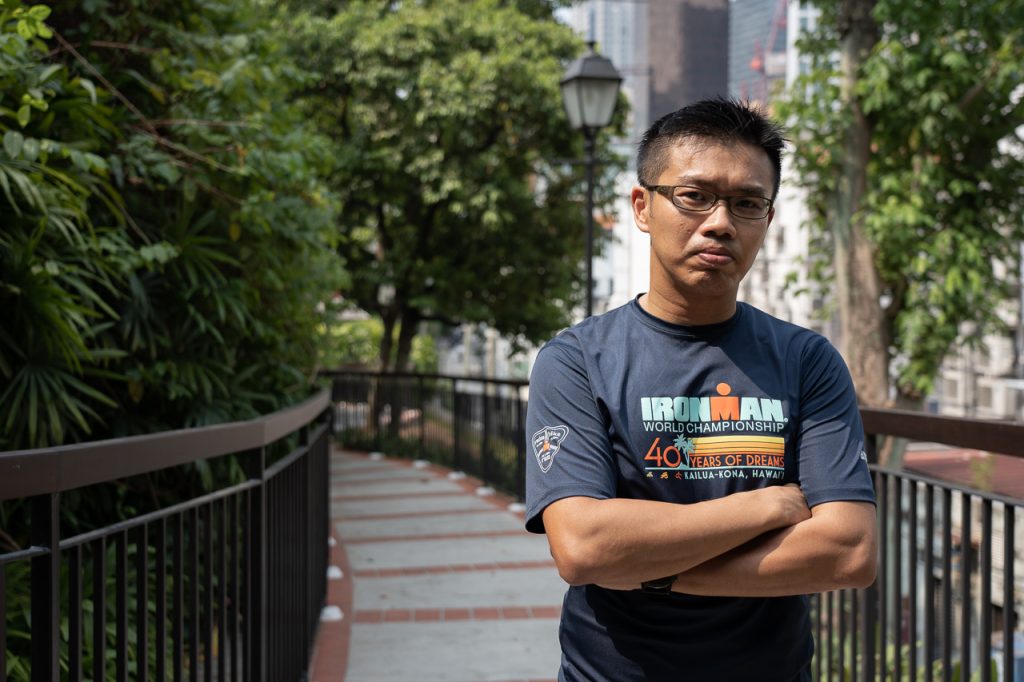
“Distractions,” our parents would say.
Yet the truth is that not everyone is academically inclined. While some of our peers get As without so much as breaking a sweat, others struggle just to stay afloat. As part of the latter category of students, believe me when I talk about how demoralising it is when your report card comes back with less As than an Icelandic phonebook.
You might have failed an exam or two, but that doesn’t mean you’re destined for a future filled with mediocrity. With Dex as an example, perhaps the most valuable lessons are learnt outside the stifling confines of a classroom— “the university of life”, as some cheesy adult might say.
Thanks to the BB and his interest in endurance sports, Dex learnt that who you are is shaped more by what you choose to do rather than how well you do. All of this (and more) was reinforced thanks to his time in the Navy.
Where once there was a boy who didn’t know any better, there now stands a successful man who has found purpose and meaning, proving that a successful career isn’t just about having the right qualifications, but also about knowing how to apply one’s skills.
So if you’re at a loss of what to do with your life, why not take a page out of the Navy’s book, and look beyond the horizon?
This post is sponsored by the Republic of Singapore Navy.
Turn your passion into purpose. Sign up for the Navy Poly/ITE Career and Sponsorship Seminar happening on 20 September 2019 at The Joyden Hall, Bugis+ #07-01 here.
Have something to say about this story? Tell us at community@ricemedia.co

